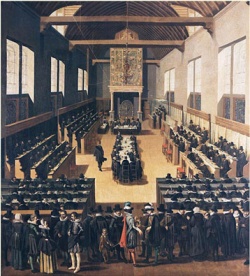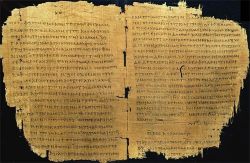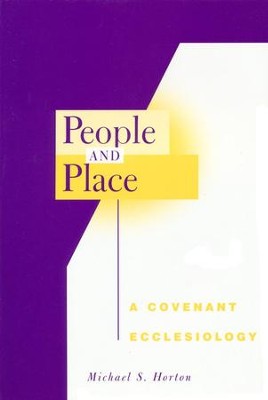 Article 4: The Inadequacy of the Light of Nature
Article 4: The Inadequacy of the Light of Nature
There is, to be sure, a certain light of nature remaining in man after the fall, by virtue of which he retains some notions about God, natural things, and the difference between what is moral and immoral, and demonstrates a certain eagerness for virtue and for good outward behavior. But this light of nature is far from enabling man to come to a saving knowledge of God and conversion to him--so far, in fact, that man does not use it rightly even in matters of nature and society. Instead, in various ways he completely distorts this light, whatever its precise character, and suppresses it in unrighteousness. In doing so he renders himself without excuse before God.
______________________________________
The Reformed understanding of total depravity and total inability raises the nagging question about what happens to those who live apart from the light of Holy Scripture and who may have never heard the gospel. “What happens to the `innocent person’ in distant lands who has never heard the gospel of Jesus Christ?’
Arminians have historically charged that it is not fair for God to hold people accountable for Adam’s act of rebellion in Eden, therefore it is certainly not fair for God to hold those accountable for not believing in Christ who have never even heard the gospel. Recall that the Arminian has argued that prevenient grace is universal, so there must be some divine provision for those outside of Christ.
Therefore, the authors of the Canons now turn to the subject of the purpose and consequences of natural revelation, or the “light of nature.”
In light of the fact of total depravity, what does the Scripture say about natural revelation, or what is more commonly spoken of as general revelation? This is best done by contrasting the purpose of general revelation (“the light of nature”) and special revelation (Holy Scripture). Then we are in a position to ask “what do fallen men and women do with the knowledge of God they that derive from “general revelation”? Does general revelation lead men and women to a saving knowledge of Jesus Christ?
First, according to general revelation, God’s power [δυναμις] and divinity [Θειοτης], are “made known” to all of Adam’s descendants universally, regardless of race, culture and geographical locale. According to Paul’s account of this from Romans 1:18-32, God is indeed known by all of Adam’s fallen race, without exception. General revelation is universal. But when we contrast this with special revelation, it is clear that the saving grace of God in Jesus Christ is only “made known” to his people, who are are given understanding of the Scriptures by the Holy Spirit and effectually called to faith in Jesus Christ through the preaching of the gospel.
Special revelation, then, is not universal, it is particular in a sense. While the gospel is to be taken to all nations—the evangelistic task of the church—only God’s people are granted faith in Christ and come to a saving understanding of God’s word.
Second, general revelation is given exclusively through the means of natural phenomena, or as Paul puts it in Romans 1:20, “through that which has been made.” That is, God makes himself known to all men and women through his creation and the natural order itself. This species of revelation is called “general” or “natural” revelation, for this very reason. Through this general revelation, all men and women do, in fact, know that God exists from the fact that all of creation itself testifies to God’s very existence and pushes all of humanity to acknowledge the creator.
Special revelation is, however, by way of contrast, distinctly supernatural and culminates in the Incarnation of the Lord Jesus Christ. Special revelation is directly connected to God’s redemptive acts and to the explanation of those redemptive acts in Holy Scripture, which—it is important to point out—itself is a distinctly redemptive act. Redemptive act and redemptive word are linked together in special revelation.
Third, according to Paul’s account in Romans 1, general revelation is given continuously—“for since the creation of the world . . .” Special revelation, on the other hand, is given exclusively in and through redemptive history and God’s mighty acts of redemption on behalf of Adam’s fallen race. As general revelation is perpetually given through exclusively natural means, special revelation is given through exclusively supernatural means and is, therefore, limited to Holy Scripture. This is why the Reformed argue not only for the infallibility of Scripture, but also for its sufficiency.
Fourth, general revelation is given to humanity as God’s creatures. That is, general revelation supplies all men and women with the knowledge that God exists, that he is their heavenly father, and that they owe their very life and breath to him since he is their creator. General revelation demonstrates to us that “God is,” and that all of his creatures owe him homage and obedience to his will.
Special revelation, on the other hand, is given to humanity as sinners, and is intended by God to supply men and women with a redemptive knowledge of God—specifically the law and the gospel—a knowledge which is not, and indeed cannot, be derived from general revelation. Thus no one can be redeemed on the basis of general revelation alone, since the gospel is not revealed in the natural order! While a pagan might come to know that God exists by watching a sunset or contemplating earth’s beauty, they cannot deduce from that the contents of the gospel!
Fifth, according to Scripture, general revelation was given specifically for the purpose of rendering the fallen children of Adam without excuse as Paul puts it quite plainly in Romans 1— “so that men are without excuse.” This was God’s intended purpose in revealing himself in nature and through the created order, because in doing so, God thereby renders all of Adam’s fallen children guilty and without any excuse whatsoever! This means that there is no one who will be able to stand before God in the judgement on the last day, and say “I didn’t know that I was a sinner who needed a savior.”
Thus the express purpose of general revelation is to leave all men and women without excuse. It was given not to save those apart from the gospel, but to condemn those who know that God is, but who, because of inherited sinfulness will inevitably suppress the truth in unrighteousness. It is equally clear that special revelation points the sinner to salvation in Jesus Christ. God—the creator and judge—is known through natural revelation, but Jesus Christ—God the savior—is only known through special revelation.
This, then, is the background needed to understand the Reformed conception of natural revelation in contrast to that of the Arminians. As the Canons state: “There is, to be sure, a certain light of nature remaining in man after the fall, by virtue of which he retains some notions about God, natural things, and the difference between what is moral and immoral, and demonstrates a certain eagerness for virtue and for good outward behavior.” Natural revelation grants unto Adam’s fallen race a knowledge of God which explains the fact that such virtues as love, justice and so on exist in virtually all cultures, even those not yet reached by the gospel.
The fact that this natural knowledge of God is sinfully suppressed, also explains the phenomena of humanity’s universal religious nature. Suppressed knowledge of God, inevitably manifests itself in idolatry. Rather than provide a means of salvation, as the Arminians have often argued, natural revelation only condemns. Thus, as the Canons point out, “this light of nature is far from enabling man to come to a saving knowledge of God and conversion to him—so far, in fact, that man does not use it rightly even in matters of nature and society. Instead, in various ways he completely distorts this light, whatever its precise character, and suppresses it in unrighteousness. In doing so he renders himself without excuse before God.”
 Wednesday, February 4, 2009 at 03:01PM
Wednesday, February 4, 2009 at 03:01PM  We've all heard the quip from Martin Luther, who, when (supposedly) asked "what would you do if you knew that the Lord was returning tomorrow?" replied, "I'd plant an apple tree today." This guy has a different answer. He wants to blow stuff up! Click here: 01/31/2009 - St. Charles County man charged with stealing explosives for 'end of the world' - STLtoday.com
We've all heard the quip from Martin Luther, who, when (supposedly) asked "what would you do if you knew that the Lord was returning tomorrow?" replied, "I'd plant an apple tree today." This guy has a different answer. He wants to blow stuff up! Click here: 01/31/2009 - St. Charles County man charged with stealing explosives for 'end of the world' - STLtoday.com










